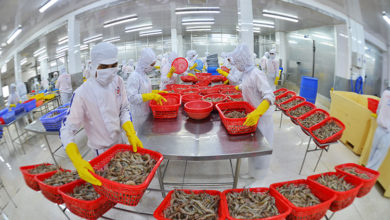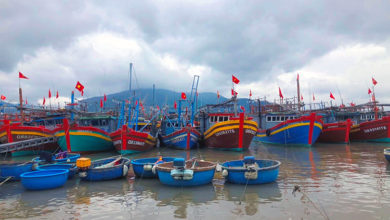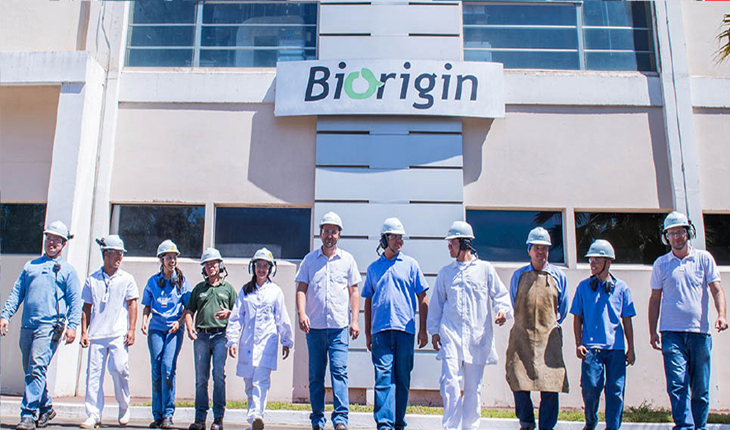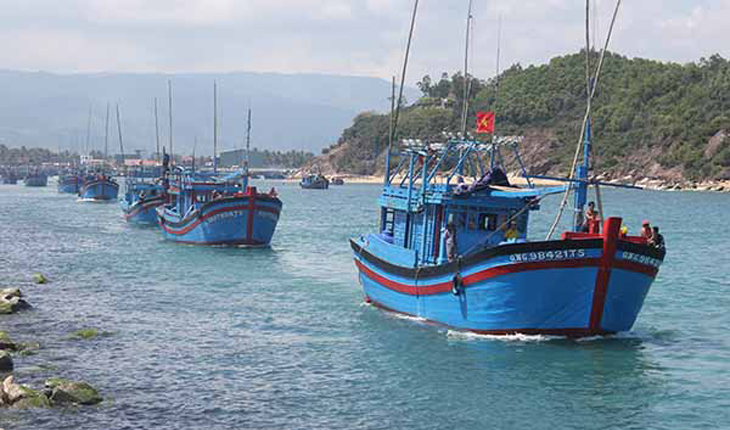CEO Nguyen Thi Hai Binh: A leading light in Vietnam’s marine aquaculture sector
Nguyen Thi Hai Binh, CEO of STP Group, is leading the charge in developing Vietnam’s marine farming industry. Driven by a vision to conquer the "blue sea," she has become a trailblazer in this field, achieving significant milestones along the way.
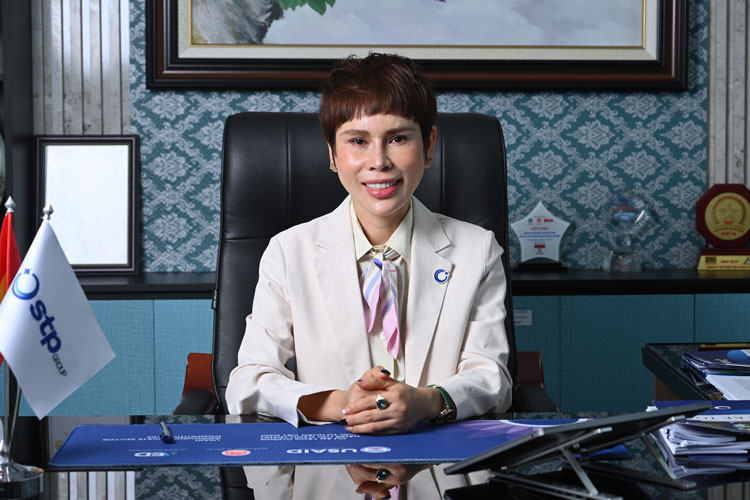
Nguyen Thi Hai Binh, CEO of STP Group
VFM: Can you share your journey into the marine farming sector?
Nguyen Thi Hai Binh: I grew up in Hai Phong city, where my parents worked at a plastic factory. I first became interested in marine farming in 1986 when my parents discussed Norway’s farming systems entering Vietnam.
In 2017, after interacting with international businesses and seeing their interest in investing in marine farming here, I decided to chart a new course for STP Group.
We have since focused on providing critical infrastructure for the aquaculture sector. Once marine aquaculture infrastructure is established, we believe it will drive development in rivers and lakes as well.
VFM: Given the challenges of marine farming, have you ever considered giving up?
Nguyen Thi Hai Binh: Yes, especially during the early stages. There were people who offered encouragement, but there were also those who doubted our efforts, which led me to question whether to continue or stop.
Fortunately, I received invaluable support from industry veterans, especially from the Vietnam Fisheries Association, which gave me the strength to keep going. Marine farming has many challenges, but I believe STP will persevere through determination and strong will.
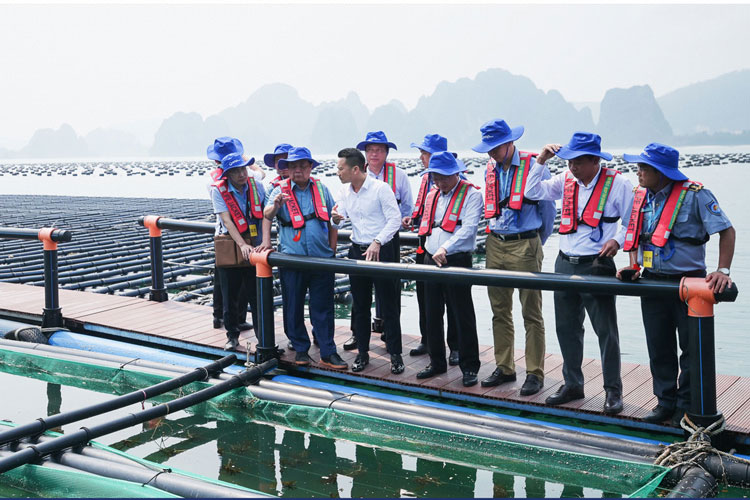
Minister Le Minh Hoan visited STP Group’s marine farming model
VFM: As the leader of STP, what are you most proud of?
Nguyen Thi Hai Binh: I feel immense happiness when reflecting on our journey. There are three things I’d like to highlight.
First, STP operates under ESG principles (Environment – Social – Governance), which has transformed how our employees think and helped foster a “Happy Home” or “Green Home” culture within the company. We’ve published The Jade Green Journey, a handbook that chronicles our shift from “brown” to “jade green” – the color of the sea. Our employees have come to understand the value of our products and the societal contributions we’re making.
Second, I’m proud to have collaborated with ministries and gained the trust of the Ministry of Agriculture and Fisheries, which has introduced STP to international partners. This trust has been a major motivation for us to continue our journey.
Third, STP has created tangible value not just for the company but for society as a whole, providing jobs for farmers and laying the groundwork for Vietnam’s sustainable marine economy. Marine farming is one of the eight pillars of the blue economy. While it ranks third or fourth in some neighboring countries, and even first in Norway, we at STP are working toward leading this sector in Vietnam.
VFM: What are the key milestones in STP’s development?
Nguyen Thi Hai Binh: A defining moment was when we introduced our marine farming products to the market and demonstrated that they were the best and most suitable for Vietnam’s conditions. Over time, the country has transitioned from using traditional materials like bamboo, wood, and foam to HDPE plastic products for aquaculture. This is a significant motivation for STP as a pioneering company in marine farming.
Another important milestone was when I had the opportunity to contribute to policy discussions with central and local authorities. Seeing our contributions reflected in government decisions was particularly rewarding.
VFM: Why has Vietnam’s marine farming industry not reached its full potential?
Nguyen Thi Hai Binh: Until recently, our focus was solely on extraction rather than farming. Many farmers still ask questions like, “What if the fish escape?” or “Where does their food go?” This reflects a general lack of understanding. That’s why we need to treat marine farming as an educational sector and raise awareness about its importance and benefits.
Most marine farming models in Vietnam remain small-scale and outdated. I’ve often highlighted the need for collaboration between the government, businesses, and farmers.
Another obstacle is financial support. The economic downturn and rising inflation have affected businesses, and there are currently no loan policies for marine farming enterprises, which urgently need financial backing from the state.
VFM: Is ESG the legacy you wish to leave behind?
ESG is our highest goal and the inevitable trend of the future. Our legacy will be the foundation we’ve built: a commitment to environmental protection and sustainable development, a shift in mindset, and an enduring love for Vietnam’s seas and islands.
VFM


